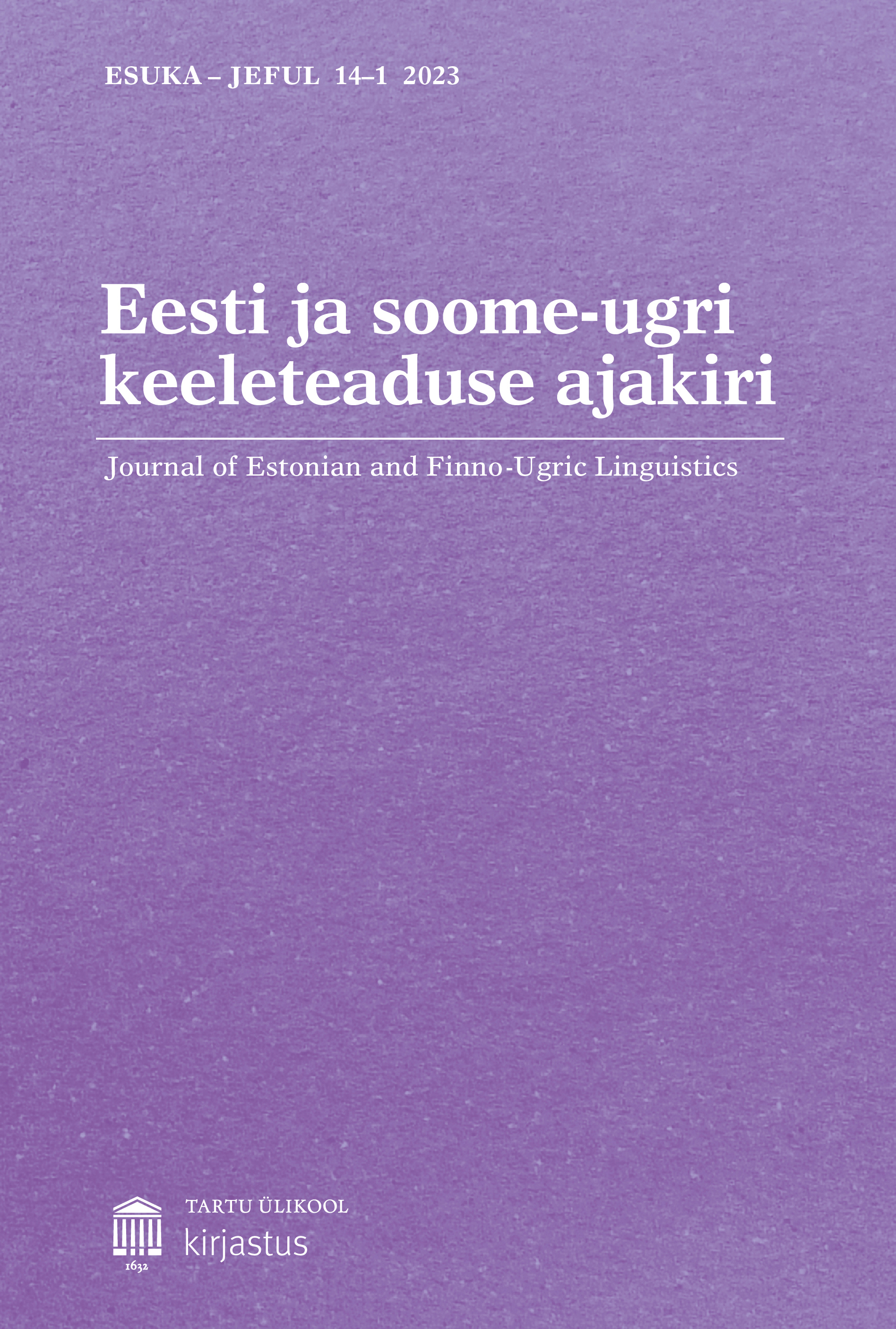Sõnatähenduste normimise traditsioon ja selle murdmine eesti keelekorralduses
DOI:
https://doi.org/10.12697/jeful.2023.14.1.02Keywords:
sõnatähendused, normimine, eesti keelekorraldus, õigekeelsussõnaraamat, EKI ühendsõnastik, Sõnaveeb, kasutuspõhine keeleteooria, word meanings, standardization, Estonian language planning, Dictionary of Standard Estonian, EKI Combined Dictionary, language portal Sõnaveeb, usage-based linguisticsAbstract
Eesti keelekorralduse traditsioon normida õigekeelsussõnaraamatuga (ÕS) üldkeele sõnade tähendusi on pikalt kujundanud ühiskonna arusaama (eesti) keele toimimisest. Alates 1980. aastatest on keelekorralduses sõnade tähendusi normimise asemel „leebemalt“ suunatud, neid kirjakeelde sobimatuks peetud ja nende kohta soovitusi antud (mh ÕSides 1999–2018). Artiklis anname ülevaate eesti keele sõnatähenduste normimise ajaloost üldisemalt alates 19. sajandi teisest poolest, analüüsides olulisemaid keelekorraldusega seotud väljaandeid. Teeme üldistusi ja järeldusi sõnatähenduste normimise kohta, tuginedes oma varasemale sõnatähendustega seotud uurimistööle: kasutuspõhise keeleteooria ja korpuslingvistika süvenemisega eesti keeleteaduses on ka keelekorralduses jõutud arusaamale, et tähendused ei püsi sõnaraamatus kinni: (uue) tähenduse kasutusse jäämine sõltub keelesisestest ja -välistest teguritest, mitte ÕSist.
Abstract. Lydia Risberg, Margit Langemets: Breaking the tradition of standardizing word meanings in Estonian language planning. The tradition of the Estonian language planning to standardize the meanings of general language through the formal Dictionary of Standard Estonian (DSE) has long influenced society’s understanding of how (Estonian) language works. Since the 1980s, instead of standardizing the meanings, the language planning has been more “lenient”, considering certain meanings inappropriate for the standard language and making recommendations on them (e.g. in the DSE 1999–2018). In this article, we will give an overview of the history of the standardization of word meanings in the Estonian language planning since the second half of the 19th century, analyzing the most important publications related to it. We draw generalizations and conclusions about the standardization of meanings based on our earlier research on word meanings: with the deepening of usage-based linguistics and corpus linguistics in Estonian linguistics, the understanding has been reached in language planning that meanings do not remain fixed in the dictionary: the (new) meaning’s survival in use depends on internal and external factors, not on the formal DSE.
Downloads
Downloads
Published
How to Cite
Issue
Section
License
Copyright (c) 2023 Lydia Risberg, Margit Langemets

This work is licensed under a Creative Commons Attribution 4.0 International License.


